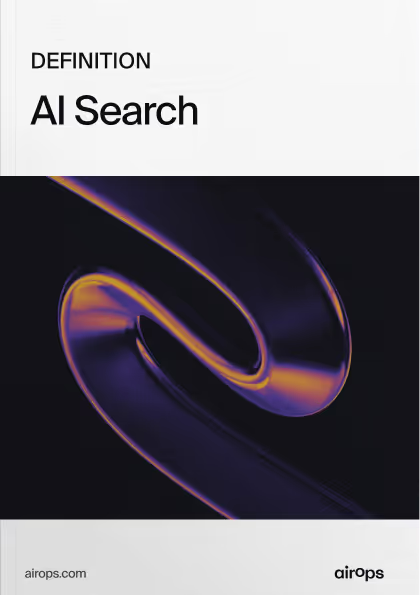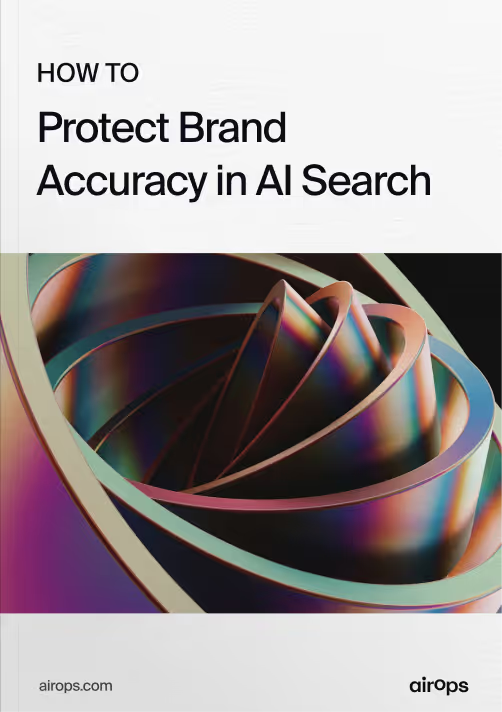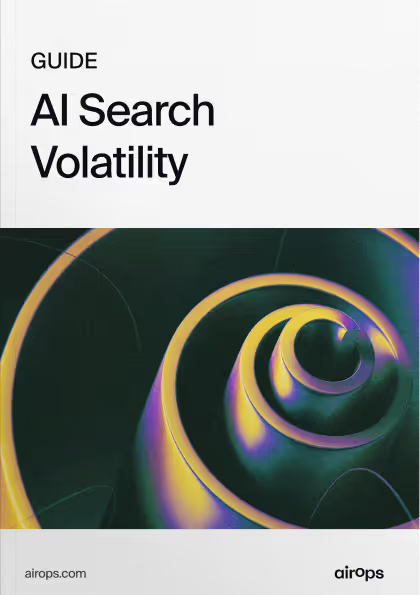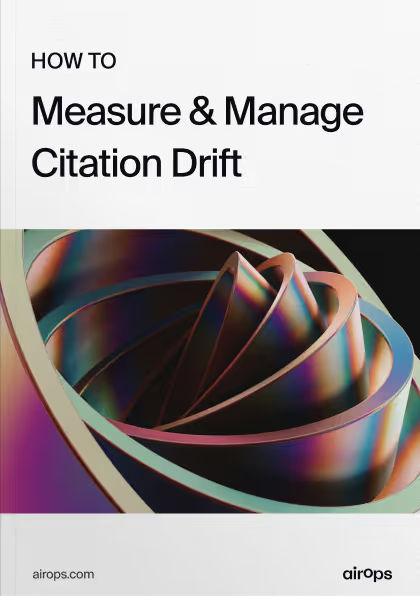What is AI Search?

What is AI Search?
AI search is a search approach powered by artificial intelligence—such as natural language processing (NLP), machine learning, and large language models (LLMs)—to interpret user intent, analyze context, and deliver direct, relevant answers or synthesized information from diverse data sources.
Complete Definition:
AI search refers to systems that use AI to understand, process, and respond to queries in a human-like, context-aware way. Unlike traditional search, which relies on keyword matching and ranked lists of links, AI search interprets natural language, synthesizes insights from multiple sources, and provides direct, conversational responses.
AI search extends beyond web search. It also powers enterprise knowledge retrieval, product and document search, and multimodal interfaces. Related terms include semantic search, vector search, and Answer Engine Optimization (AEO), but AI search serves as the umbrella term for all AI-driven information retrieval and synthesis.
How is AI Search Different from Traditional Search Engines?
Traditional search engines rely on keyword matching and algorithmic interpretation of intent—inferring what users mean based on the specific words and phrases searched.
AI search, on the other hand, moves beyond keyword dependency. It interprets natural language, understands nuance and context, and generates synthesized responses that reflect the intent behind the query within its surrounding or larger conversational context. This allows AI systems to connect ideas, clarify ambiguity, and deliver answers that evolve as the conversation unfolds.
Unlike traditional search, AI systems can:
- Analyze meaning: Understand user intent and interpret related context within a broader conversation.
- Deliver conversational responses: Provide adaptive, context-aware answers rather than static ranked results.
- Leverage advanced reasoning models: Use large language models and semantic search to synthesize insights from multiple trusted sources.
- Offer interactive experiences: Present citations, enable follow-up questions, and refine responses dynamically within the same session.
Types of AI Search
There are various types of AI search, where each uses different methods, algorithms, and interfaces to deliver search experiences:
- Web & Answer Engine Search: Synthesizes answers from public web content and structured data.
- Enterprise & Document Search: Surfaces knowledge from internal files and communication systems.
- Semantic Search: Matches concepts and intent, not just keywords, for more relevant results.
- Conversational & Assistant Search: Enables multi-turn, natural language dialogue.
- Vector Search: Uses embeddings to find semantically similar information across formats and languages.
Where Does AI Search Occur?
AI search appears across platforms and environments where people expect instant, context-rich answers, not just links. It spans both consumer-facing tools and enterprise systems that apply AI to interpret information in real time.
- Answer engines: Platforms like ChatGPT, Perplexity, Claude, and Google’s AI Overviews synthesize responses from multiple sources to deliver conversational, citation-backed answers.
- Enterprise search tools: Internal systems use AI to index documents, emails, and databases. These help teams surface insights faster and more accurately than keyword search alone.
- Embedded assistants: Browsers, apps, and connected devices integrate AI features that offer contextual recommendations, summaries, or task-specific guidance.
- AI-powered SERPs: Traditional search results are being enhanced with AI-generated overviews, citations, and interactive explanations that summarize complex topics.
- Chatbots and virtual agents: Customer support and sales systems increasingly use large language models and retrieval-augmented generation (RAG) to understand queries and provide personalized responses.
Why Is AI Search Important?
AI search is reshaping how information is surfaced, trusted, and consumed. Visibility is no longer determined only by rankings on a search results page—it now depends on whether content is selected, cited, or mentioned within AI-generated answers. These answers often satisfy intent directly, reducing reliance on link clicks and traditional organic traffic.
Citations in answer engines function as signals of brand authority, reinforcing credibility with both algorithms and audiences. At the same time, the rise of zero-click behavior means discovery increasingly happens inside AI summaries rather than on external sites. For organizations, the stakes are high: those absent from AI-generated answers risk losing visibility, trust, and long-term relevance as AI search reshapes user discovery.
How Does AI Search Impact Organic Marketing?
AI search shifts visibility away from ranked link lists and toward direct, AI-generated responses. Instead of focusing only on SERP positions, organizations must also consider how their content is interpreted and presented by AI systems.
- Fewer clicks from search results: AI overviews often resolve queries without requiring users to visit a site.
- New visibility signals: Citations and brand mentions inside AI answers increasingly determine which sources are surfaced.
- Greater importance of freshness: Clear, updated, and context-rich content is more likely to be selected and cited.
- Evolving measurement needs: Traditional SEO metrics no longer capture the full picture of visibility in AI-driven environments.
To remain discoverable, content must be structured, refreshed, and evaluated for AI visibility in a landscape where answers are often delivered without
How Does AI Search Impact Brand Visibility?
AI search redefines how brands earn trust and exposure. Citations act as proof of brand authority, shaping both algorithmic recognition and user perception. Mentions inside AI answers build awareness and consideration, even without direct traffic. Brands that neglect AI visibility risk becoming invisible as discovery shifts from traditional search to AI-powered answers.
Win AI Search.
Increase brand visibility across AI search and Google with the only platform taking you from insights to action.
Table of Contents
Get the best and latest in growth and AI search delivered to your inbox each week.




